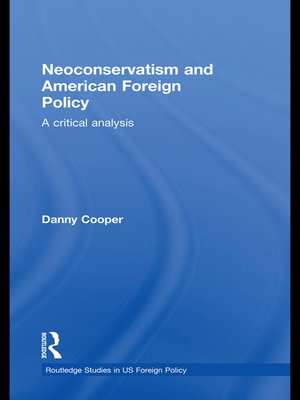Neoconservatism and American Foreign Policy
ebook ∣ A Critical Analysis · Routledge Studies in US Foreign Policy
By Danny Cooper

Sign up to save your library
With an OverDrive account, you can save your favorite libraries for at-a-glance information about availability. Find out more about OverDrive accounts.
Find this title in Libby, the library reading app by OverDrive.



Search for a digital library with this title
Title found at these libraries:
| Library Name | Distance |
|---|---|
| Loading... |
At the time of America's 2003 invasion of Iraq, the term "neoconservative" was enjoying wide currency. To this day, it remains a term that engenders much debate and visceral reaction. The purpose of this book is to critically engage with a set of ideas and beliefs that define the neoconservative approach to American foreign policy, and illuminate many of the core foreign policy debates that have taken place within the United States over the past several years during the administrations of both George W. Bush and Barack Obama.
There is certainly no consensus on how neoconservatism should be defined or thought about. While authors attempt to define neoconservatism in a number of different ways, none adopt a thematic approach that can enable readers to appreciate the contributions of an intellectual community whose ideas will be forever attached to America's decision to go to war against Iraq. This book, therefore, defines neoconservatism through the ideas and beliefs of its leading intellectual activists, casting light on the worldview of one of America's most important and polarizing intellectual communities.
Exploring the historical significance of this ongoing movement and its impact on American foreign policy traditions, this work provides a significant contribution to the literature and will be of great interest to all scholars of foreign policy, American politics and American history.







